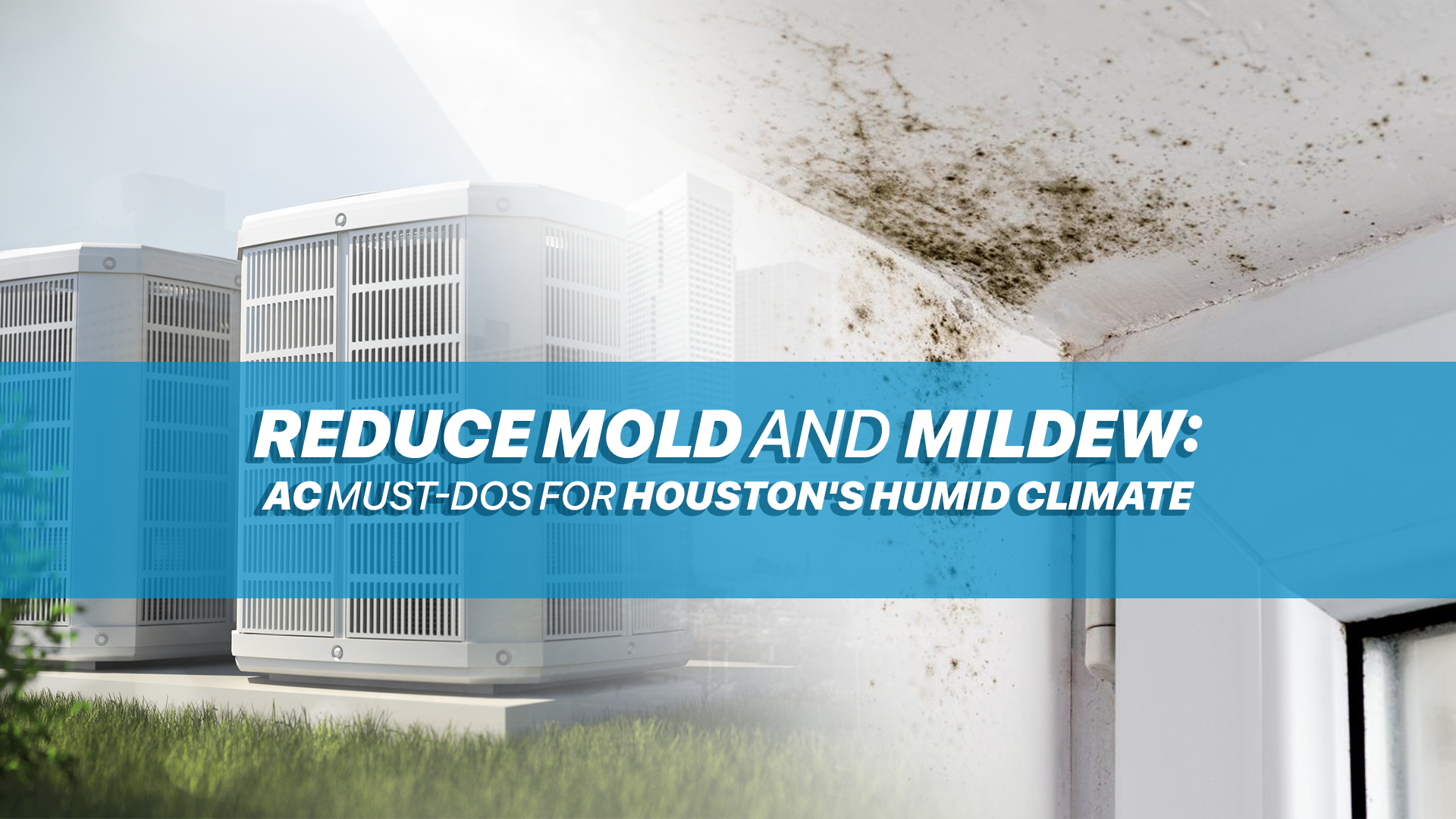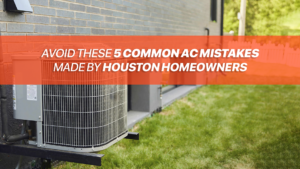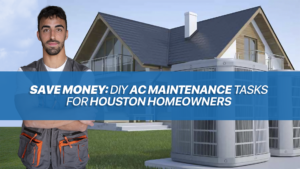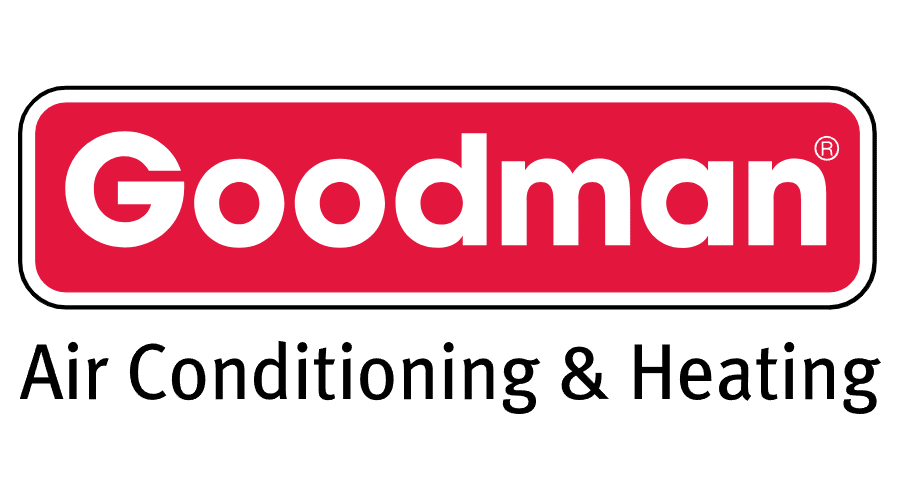Houston’s hot and humid climate creates the perfect breeding ground for mold and mildew growth in homes. Prolonged exposure can cause a variety of health issues like respiratory problems, allergies, and asthma. To protect your family’s health and avoid expensive repairs, it’s crucial to control moisture and maintain proper indoor humidity levels.
In this article, we’ll explore key AC maintenance tips and indoor humidity best practices tailored for Houston homeowners.
Why Houston’s Climate Promotes Mold Growth
Houston’s long, hot, and humid summers provide ideal conditions for mold to thrive both outdoors and indoors. Here’s why this climate enables rapid mold proliferation:
- High humidity – Average relative humidity ranges from 65% to 90% in Houston. Mold thrives when indoor humidity crosses 60%, providing enough moisture for spores to germinate.
- Hot temperatures – Houston sees 100+ days annually over 90°F. Heat accelerates evaporation from damp spots, supplying more moisture.
- Heavy rainfall – Houston gets an average annual rainfall of 49 inches. Wet weather promotes mold growth outdoors, increasing the spores that can enter your home.
- Poor insulation – Old, poorly insulated homes cannot prevent humidity intrusion and moisture buildup indoors. This allows mold colonies to grow unchecked.
- Limited air circulation – Stagnant air pockets in the home provide ideal dark, humid spots for mold to flourish undetected.
Without proactive moisture control, Houston homes provide the perfect Petri dish for mold! Let’s look at key steps you must take to reduce this health hazard.
Your AC system plays a crucial role in regulating indoor humidity levels. Proper maintenance prevents moisture buildup that enables mold growth.
Here are 5 must-do AC maintenance tips for Houston homeowners:
1. Change Filters Regularly
- Replace filters every 1-3 months during peak usage seasons.
- Use filters with a MERV rating of 8-12 for better moisture removal.
- Check filters monthly and replace sooner if dirty.
Clogged, damp filters prevent proper moisture removal and airflow, leading to high indoor humidity. Regular replacement ensures your AC system can effectively regulate humidity.
2. Clean the Condensate Drain Line
- Use a stiff wire to clear clog-causing algae, mold, and debris every 2-3 months.
- Pour vinegar or an evaporator coil cleaner to prevent future clogs.
- Install a float switch that triggers the HVAC unit to shut off if the drain line clogs.
A backed-up drain line leaks water into your home, raising humidity levels drastically. Keep the drain line clear to enable proper condensation drainage.
3. Check Insulation Around Ductwork
- Inspect duct insulation for gaps or tears once a year.
- Repair damaged insulation to prevent condensation forming on duct exteriors.
- Insulate all exposed cold air return and supply ducts in vented attics.
Uninsulated ducts “sweat” in Houston’s humidity, dripping condensate that promotes growth in hidden spots. Proper insulation prevents this moisture buildup.
4. Have a Professional Deep Clean the HVAC System
- Schedule an annual deep clean before peak AC season.
- The technician will sanitize all components and thoroughly clean:
- Blower motor
- Coils
- Condensate pan
- Vents
- Ducts
- Ask about sanitizing foggers or UV lights to prevent microbial growth.
A deep clean removes mold spores and debris buildup. It also sanitizes components to inhibit future growth.
- Adds supplemental dehumidification to lower indoor humidity.
- Allows HVAC system to focus on cooling rather than moisture removal.
- Controls humidity even when the AC unit cycles off.
For extreme humidity, a dehumidifier prevents the AC system from becoming overwhelmed. It ensures moisture levels stay in check even when cooling isn’t needed.
By diligently following these AC maintenance tips, you can effectively regulate indoor humidity before it reaches mold-promoting levels.
Indoor Humidity Level Best Practices
In addition to AC maintenance, monitoring and controlling indoor humidity is crucial for mold prevention. Follow these indoor humidity best practices:
Use a Hygrometer
- Place digital hygrometers in problem areas like basements or bathrooms.
- Check daily and record trends to identify issues before they develops.
- Alerts you if humidity crosses 60% so you can take corrective action.
Tracking humidity helps pinpoint trouble spots and humidity spikes before they become a big problem.
Ventilate Properly
- Always run bathroom fans for 30 minutes after showering.
- Ventilate kitchens while cooking and run fans for 10 minutes after.
- Open windows periodically when safe to increase air circulation.
Proper ventilation removes humidity from mold-prone areas before it spreads to the rest of the home.
Manage Water Sources
- Fix plumbing leaks immediately to prevent moisture buildup.
- Run large appliances like dishwashers at night to allow moisture dissipation.
- Limit houseplants as excess watering raises humidity.
Controlling major household humidity sources prevents spikes that could lead to mold development.
Consider a Whole-Home Humidifier
- Lowers humidity by adding dry air during cooler months.
- Prevents humidity spikes when warm, wet outdoor air enters the home.
- Allows AC system to focus on cooling rather than moisture removal.
Whole-home units provide the most comprehensive humidity control during Houston’s long humid seasons.
Maintain Proper Temperature
- Keep home between 68°F – 72°F during humid months.
- Avoid drastic temperature spikes that could condense moisture on cool surfaces.
- Use smart thermostats to optimize temperature and humidity based on occupancy patterns.
Consistent, moderate temperatures year-round help minimize humidity fluctuations that encourage mold growth. Diligent humidity monitoring and control coupled with proactive AC maintenance provides the best protection against infestation.
Signs of Mold Troubles in Your Houston Home
While mold needs moisture to grow, it often flourishes out of sight. Here are 5 signs that may indicate a hidden problem:
- Musty Odors : Catching a whiff of something dank or musty could mean mold is lurking out of sight. Don’t ignore unexplained musty smells!
- Increased Respiratory Problems : Worsening asthma, allergies, or coughs among family members can indicate mold exposure. Pay attention to when and where symptoms worsen.
- Peeling or Bubbling Paint : Paint peeling for no apparent reason may signal moisture buildup and mold growth underneath.
- White Dust or Growth on Vents : White, fuzzy growth around vents is likely mold spores or growth fueled by condensation and moisture.
- Water Stains on Ceilings, Walls or Floor : Water stains or moisture on surfaces like drywall or tile grout likely indicates a water leak providing ideal conditions for hidden mold.
Don’t ignore these subtle signs of humidity issues in your home. Call a mold remediation specialist immediately. Concerned about a potential mold problem? Here are tips for inspecting your home:
- Target Wet Areas : Inspect bathrooms, basements, kitchens, attics and anywhere you’ve had plumbing leaks or water damage. Mold needs moisture to grow.
- Remove Switch Plates : Look for mold growth behind electrical switch plates and outlets, a common hidden spot.
- Check Under Carpets : Lift up corners and edges of carpets and rugs to check for mold or moisture damage underneath.
- Look Behind Furniture : Move furniture away from exterior walls and inspect for any mold or moisture damage behind them.
- Peer Inside Vents : Use a flashlight to look inside heating and cooling ducts for mold growth or debris clogs.
- Monitor with a Humidity Gauge : Track problem areas with a hygrometer. Consistently high readings over 60% indicate excess moisture that could cause mold.
If you confirm or even suspect a mold issue, contact a professional Houston mold inspection and remediation company immediately. Mold damage worsens quickly if left unchecked in Houston’s climate.
Benefits of Professional Mold Remediation
DIY mold removal is not recommended. Here are benefits of hiring a professional Houston mold remediation company:
- Extensive Mold Removal : Professionals have commercial-grade tools to thoroughly clean affected areas and kill mold roots. DIY cleaning typically only addresses surface mold.
- Moisture Source Identification : Experts use moisture meters and infrared cameras to pinpoint hidden leaks fueling mold growth that you may miss.
- Property Damage Prevention : Improper DIY removal can worsen water damage or accidentally spread spores. Professionals prevent further destruction.
- Personal Protective Equipment : Technicians wear respirators, goggles, and protective clothing to work safely in contaminated areas.
- Professional Drying Equipment : Truck-mounted extraction tools, dehumidifiers, and commercial drying equipment thoroughly dry affected areas to prevent mold recurrence.
Don’t risk your family’s health or cause additional home damage with DIY mold removal. Contact a professional Houston mold remediation company to address the issue completely.
Find a Houston Mold Remediation Specialist
Don’t let Houston’s hot, humid climate create a mold problem in your home. Contact the experts at Turbo Home Services to inspect your home and create a customized mold prevention plan. Our NADCA-certified HVAC technicians specialize in moisture control and mold remediation. We also offer:
- Air duct cleaning and sanitation
- Drain pan cleaning and repair
- Installation of humidity-controlling equipment
- Moisture inspection and leak detection
- Professional mold testing and analysis
Protect your family’s health and your biggest investment. Reduce mold and mildew in your Houston home with comprehensive AC maintenance and humidity control. Contact Turbo Home Services at (281) 626-5938 or visit https://turbohomeservices.com/contact-us/ to schedule an appointment with our mold and humidity specialists. Beat the heat and humidity this summer with a comfortable home!









